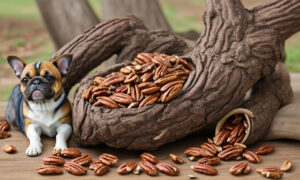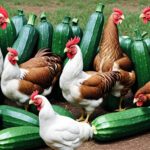As a dog owner, ensuring that your furry friend is healthy and happy is always at the forefront of your priorities. Just like humans, dogs need a balanced diet to thrive, but does cabbage have a place on your pooch’s plate? Let’s dive into the world of dog nutrition and find out how this leafy green vegetable can benefit your canine companion.
Cabbage is a nutritious vegetable that boasts an array of health benefits, but when it comes to feeding it to your dog, there are a few important things to consider. From the nutritional benefits of cabbage to the best ways to incorporate it into your dog’s diet, we’ve got you covered with vet-approved tips and insights.
Nutritional Benefits of Cabbage for Dogs
When we consider adding vegetables to a dog’s diet, it’s essential to look at the nutritional value they offer. Cabbage is high in fiber, which supports healthy digestion. It also contains antioxidants, such as vitamin C and vitamin K, which contribute to overall wellness. Here’s what you need to know about cabbage’s nutritional assets:
Related article; can dogs eat watermelon
- Fiber: Helps to maintain bowel health and regularity.
- Vitamin C: An immune system booster.
- Vitamin K: Essential for blood clotting functions.
- Antioxidants: Neutralize harmful free radicals in the body.
Can Dogs Safely Eat All Types of Cabbage?
Cabbage comes in several varieties, including green cabbage, red cabbage, and savoy cabbage, among others. While all these types are generally safe for dogs to eat in moderation, there are differences in nutrient levels. Green cabbage is the most common and is a great low-calorie snack rich in vitamins and minerals.
Red cabbage contains a higher concentration of certain antioxidants, which can provide an extra health kick. However, it’s important to remember that red cabbage may also be slightly tougher on the digestive system due to its higher dietary fiber content.
How to Prepare Cabbage for Your Dog
It’s not just about the cabbage itself, but also how it’s prepared. Here’s a quick breakdown of the safest ways to offer this vegetable to your dog:
- Steamed: The best way to maintain nutrients while making it easier to digest.
- Raw: In small amounts. Chopping it finely can aid in digestion.
- Cooked: Lightly cooked without spices or oils is a safe bet.
Always ensure that the cabbage is plain and free of any potentially harmful ingredients such as garlic or onion.
Canine Dietary Restrictions and Cabbage
Just because cabbage is healthy, doesn’t mean it’s a one-size-fits-all ingredient for every dog. Different dogs have different dietary needs and restrictions. Some may be more sensitive to certain foods, so it’s important to:
- Introduce cabbage gradually to your dog’s diet.
- Monitor your dog’s reaction to the new addition.
- Consult with your veterinarian before making significant changes to your dog’s diet.
Potential Risks When Feeding Your Dog Cabbage
Cabbage and gas in dogs can sometimes go hand in hand. Cabbage has been known to cause flatulence in some dogs, which, while not harmful, might be unpleasant. More seriously, in large quantities, cabbage can potentially cause hypothyroidism due to a compound called goitrogen, which can interfere with thyroid function. Therefore, moderation is key.
Special Considerations for Dogs with Health Issues
Dogs with existing thyroid issues should probably steer clear from cabbage altogether, or only consume it on the advice of a vet. Additionally, dogs with Kidney problems might require a more controlled diet, so cabbage might not be suitable for them either.
Creative Ways to Include Cabbage in Your Dog’s Diet
When it comes to incorporating cabbage into your dog’s diet, creativity is your best friend. Here are some fun and simple ways to do so:
- Mix steamed cabbage with your dog’s regular food for an extra vitamin boost.
- Offer small bites of raw cabbage as a crunchy treat.
- Prepare a homemade dog stew with cabbage as one of the vegetables.
Homemade Dog Treat Recipe Using Cabbage
Embrace your inner chef with this simple, dog-friendly recipe:
Ingredients:
- 1 cup chopped cabbage
- 1 cup diced carrots
- 1 cup ground turkey or chicken
- 2 cups of brown rice
Directions:
- Steam the cabbage and carrots until tender.
- Cook the ground turkey or chicken thoroughly.
- Combine with the cooked brown rice.
- Let cool before serving it to your dog in appropriate portion sizes.
A Vet’s Perspective on a Balanced Canine Diet
Vets emphasize the importance of a balanced diet for your dog, which means not overdoing it with any one type of food. While cabbage can be a healthy part of your dog’s diet, it should not replace other essential elements like high-quality commercial dog food that provides complete nutrition.
Integrating Cabbage with Commercial Dog Foods
Given the importance of a balanced diet, here’s how you can integrate cabbage with your dog’s regular commercial food:
- Use a small amount of steamed cabbage as a topper.
- Mix finely shredded cabbage into wet dog food for added texture.
- Use cabbage as a filler to bulk up meals without adding too many calories for dogs on a weight management plan.
Can Dogs Eat Cabbage Every Day?
While dogs can eat cabbage, it’s advisable not to give it to your pup daily. Feeding your dog cabbage in moderation is the best practice, perhaps two to three times a week at most, as part of a well-rounded diet.
Spotting Overconsumption Symptoms
Keep an eye out for symptoms that might indicate your dog is overconsuming cabbage, including:
- Excessive gas
- Stomach upset
- Changes in bowel movements
If you notice any of these symptoms, it would be wise to stop feeding your dog cabbage and consult with your vet.
Wrapping It Up: Cabbage as a Healthy Addition to Your Dog’s Diet
Cabbage can be a healthy addition to your dog’s diet when used correctly. With its rich nutrient profile and potential health benefits, coupled with the right preparation and moderation, you can safely enhance your pooch’s meals and treat them to something delicious and different.
Here’s a quick recap of what we’ve covered:
- Introduce cabbage slowly into your dog’s meals.
- Always prepare it plain and ensure it’s dog-friendly.
- Be aware of quantity to avoid potential thyroid and digestive issues.
- Get creative with recipes that include cabbage.
- Always refer to a vet for advice, especially if your dog has health concerns.
By being mindful of these diet tips, you can provide your best friend with the nutritional benefits of cabbage without the risks. Remember, a happy dog is not just about a wagging tail, but also about a healthy diet and lifestyle.
Remember: moderation and variety are the secrets to a healthy diet for your dog. Enjoy exploring the many ways you can incorporate cabbage into their diet, always with their well-being as your top priority.








[…] The kiwi – Actinidia deliciosa – is a nutrient-packed fruit originating from China. Below are its most remarkable nutrients: Related article; can dogs eat cabbage […]
[…] Related Article: Can Dogs Eat Cabbage […]
[…] Pecans are loaded with antioxidants, healthy fats, and vitamins providing a powerhouse of nutrition for humans. However, just because they’re a healthful snack for us, doesn’t mean the same applies to our furry friends. Related article; can dogs eat cabbage […]